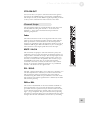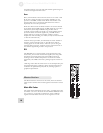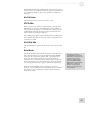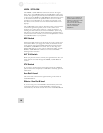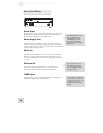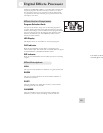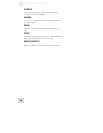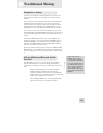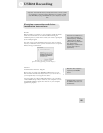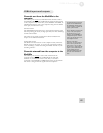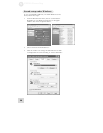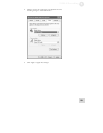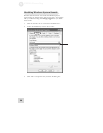
4 Traditional Mixing
23
Simple Live Setup
Connect your instruments and microphones to the mono and
stereo channels, making sure to properly set the level of each
channel.
You can select one on-board effect and control its level with the
AUX B knob for each channel. You can also use an external
effects processor by sending a signal to the external unit via the
AUX SEND A and returning it via AUX RETURN A (you’ll
probably want to set AUX SEND A to POST, for “post-fader.”).
If you wish, you can use a second external effects processor via
AUX SEND B and AUX RETURN B. However, note that use of
an external effects processor on these jacks disables the internal
effects.
Connect the MAIN MIX OUT to a PA system amplifier. For
monitoring purposes, you can connect the CTRL RM OUT to a
headphone amplifier. You could also connect a digital equalizer
(like the Alesis DEQ-230D) between the DIGITAL OUTPUT
and a PA system for extra tone control.
By muting channels and pressing the ALT 3/4-to-HDPH/CTRL
RM button in, you can audition a channel before you bring it into
the mix, making sure the levels are OK before the audience hears
it.
Using Additional External Audio
Sources
The MultiMix gives you a few extra audio inputs in addition to
the mic and line inputs. If you want to bring external audio
sources into a recording or live mix, you can do it in one of two
ways:
Using the 2-TRACK IN, you can add a tape deck,
ADAT, CD player, USB2.0 audio stream from a
computer, or other source to the mix. The 2-TRACK
IN also can be used to entertain the audience with a CD
as the band is setting up for a live show.
The AUX RETURNS can be used as additional audio
inputs when you are not using them for effects.
A
udio coming into the
MultiMix from a computer
over the USB2.0 connection
is routed to the 2-TRACK IN.
You can use the RCA jacks of
the 2-TRACK IN at the same
time as audio is playing back
from a computer, but you
must adjust the relative levels
of each input from outside the
MultiMix.



